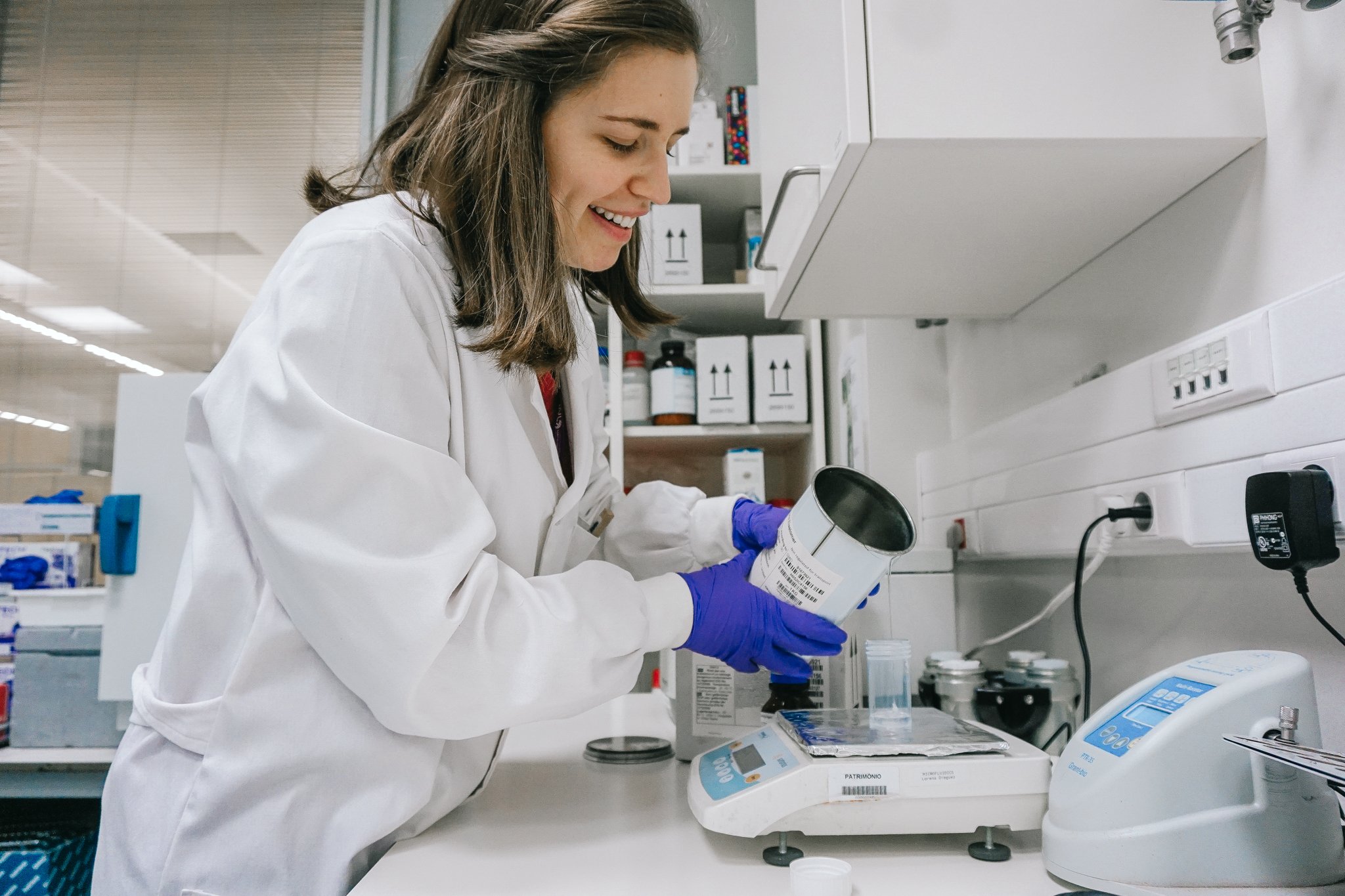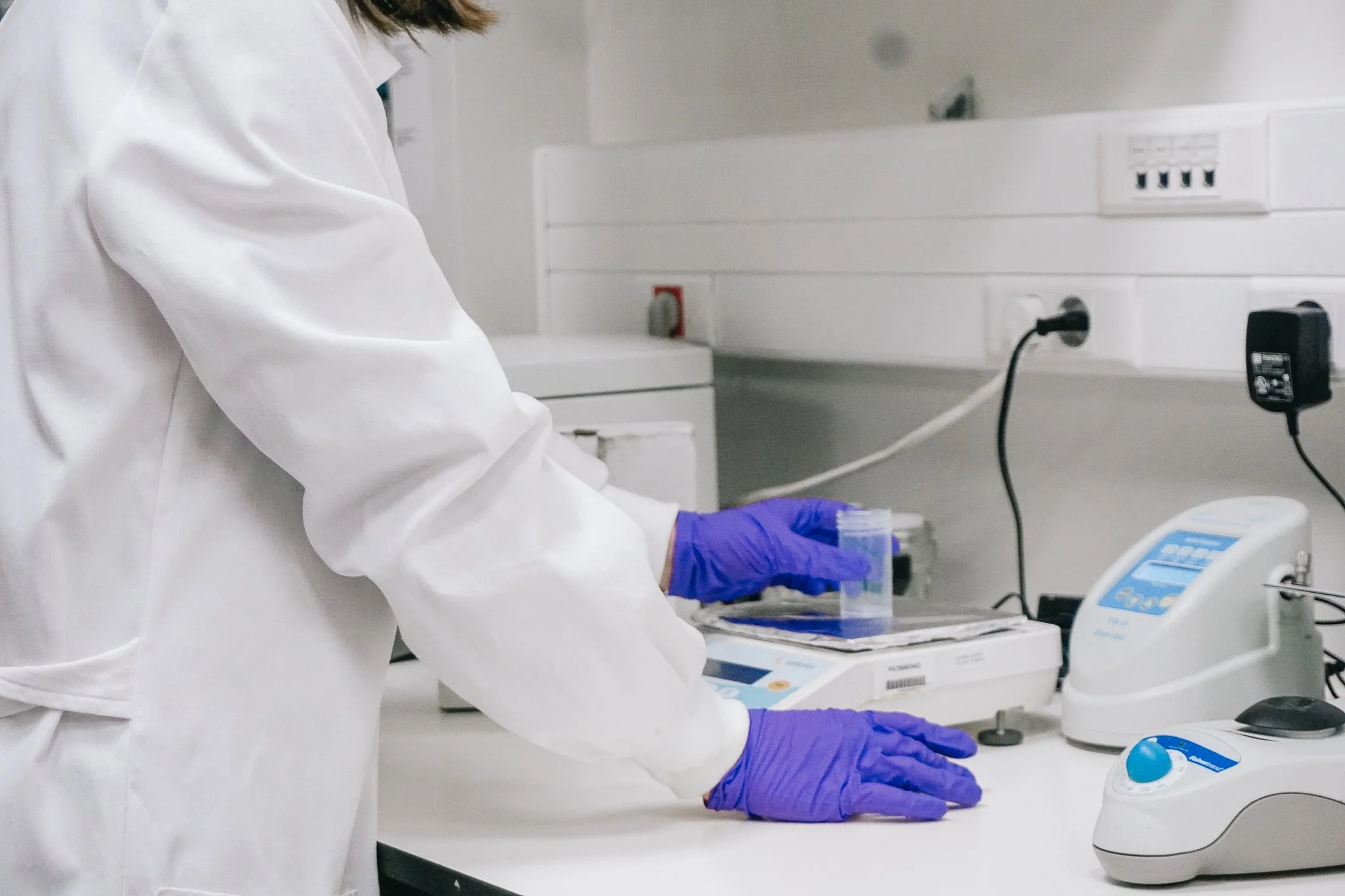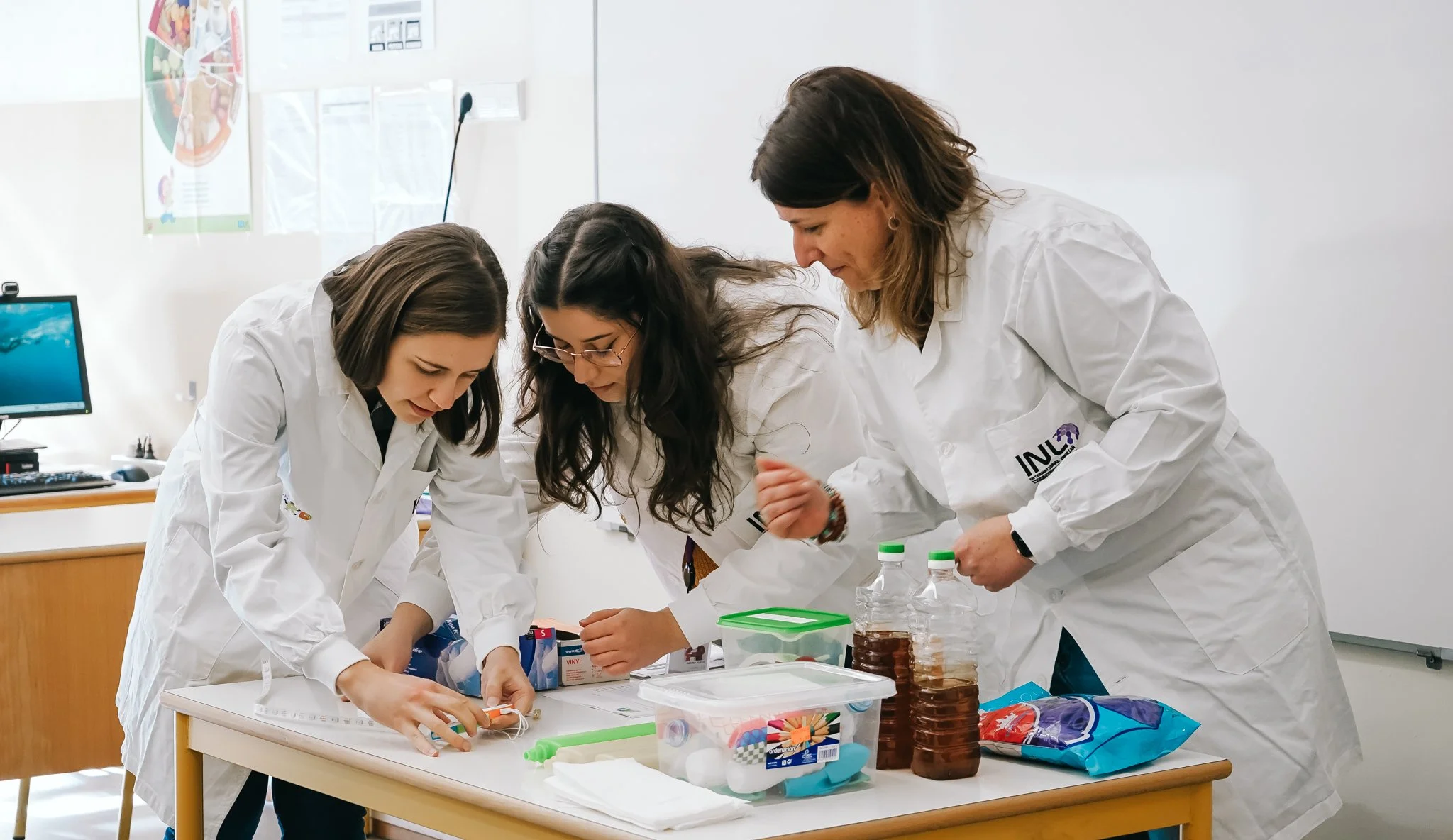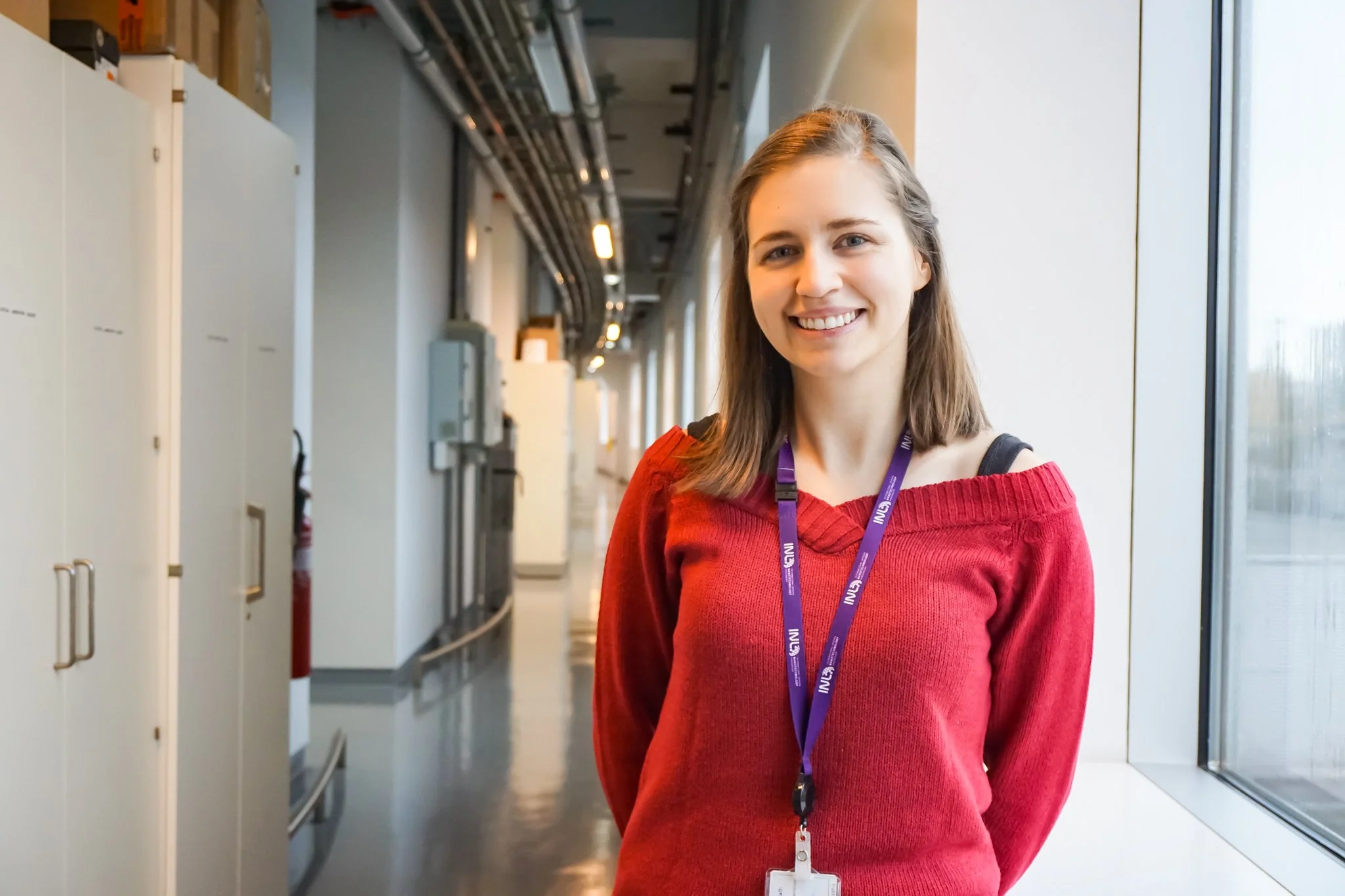Meet Sara Resende, PhD Student in Biomedical Engineering at the Nanodevices Research Group
We continue to spotlight women in STEM with this new interview series with Women working in/with Science at INL - International Iberian Nanotechnology Laboratory. It is essential to celebrate the outstanding contributions women make to science.
Meet Sara Resende. She joined INL - International Iberian Nanotechnology Laboratory in November 2021 as a PhD. Student in Biomedical Engineering for the Nanodevices Research Group. Her research is focused on developing novel sensors for Inflammatory Bowel Diseases using photonic crystals and molecularly imprinted polymers.
Sara holds a BSc in Biochemistry (2013) and an MSc in Forensic Chemistry (2015), both from the University of Coimbra. She developed her MSc Thesis at Ghent University (Belgium), where she studied new methods for quantifying anti-depressants; after that, she worked for Sanofi (Belgium), where she studied innovative treatments for Inflammatory Bowel Diseases. Her main research interests include the development of colourimetric sensors, science communication, scientific writing and editing and scientific illustration.
Sara, can you tell us a bit about your path and your main area of work?
I studied at the University of Coimbra, where I did my bachelor's degree in Biochemistry and proceeded to a Master's Degree in Forensic Chemistry. I always wanted to do Erasmus and the opportunity showed up during the last year: I searched for a lot of research centres and laboratories to do my master's thesis and I ended up in Ghent, Belgium. I joined the Toxicology Lab at Ghent University Hospital, where I developed methods to detect and quantify antidepressants.
After that, and still living in Ghent, I worked as a lab technician in a pharmaceutical company called Sanofi: I was assigned to a project related to Inflammatory Bowel Diseases (IBD), which sparked my interest in this topic. It was during this time that I noticed a PhD degree would be a valuable tool, not only to give me more knowledge but also to help me be a better scientist and overcome some research struggles. So in 2019, I moved back to Portugal and started my PhD degree in Biomedical Engineering at Instituto Superior Técnico.
I currently live in Porto, and divide my time between Porto and Braga, since I am developing my work in Biomark Sensor Research at INL and ISEP - Instituto Superior de Engenharia do Porto. I aim to develop colourimetric sensors to detect and quantify biomarkers in IBD.
What inspires you and excites you about science?
During my research path, and especially during my PhD, I faced many obstacles and did so many failed experiments, which made me doubt myself. However, with the help of my colleagues and supervisors, a lot of work and a little creativity, I managed to overcome these challenges, making me happy and confident! There is nothing like the joy of seeing your failed experiment finally working out!
What challenges have you faced being a woman in science?
I think the biggest challenge for me is not being taken seriously - it is uncomfortable to give your ideas and solutions to solve a specific problem, and nobody seems to listen. It is also demotivating to see more men taking senior positions in the scientific fields, and consequently, more lucrative. Seems like women achieve a particular position and the possibilities for growth decrease.
Another challenge is to achieve a reasonable work-life balance. We work many hours daily, and juggling everything and spending quality time with our families and friends is challenging.
Briefly, what inspires you about your next projects?
I am almost finishing my PhD, so my next big challenge is communicating effectively and clearly all my work in the last four years. Communicating science has always been a big challenge for me, but I am eager to start this journey, and this definitely gives me a chance to get creative and explore new working tools and new paths!




